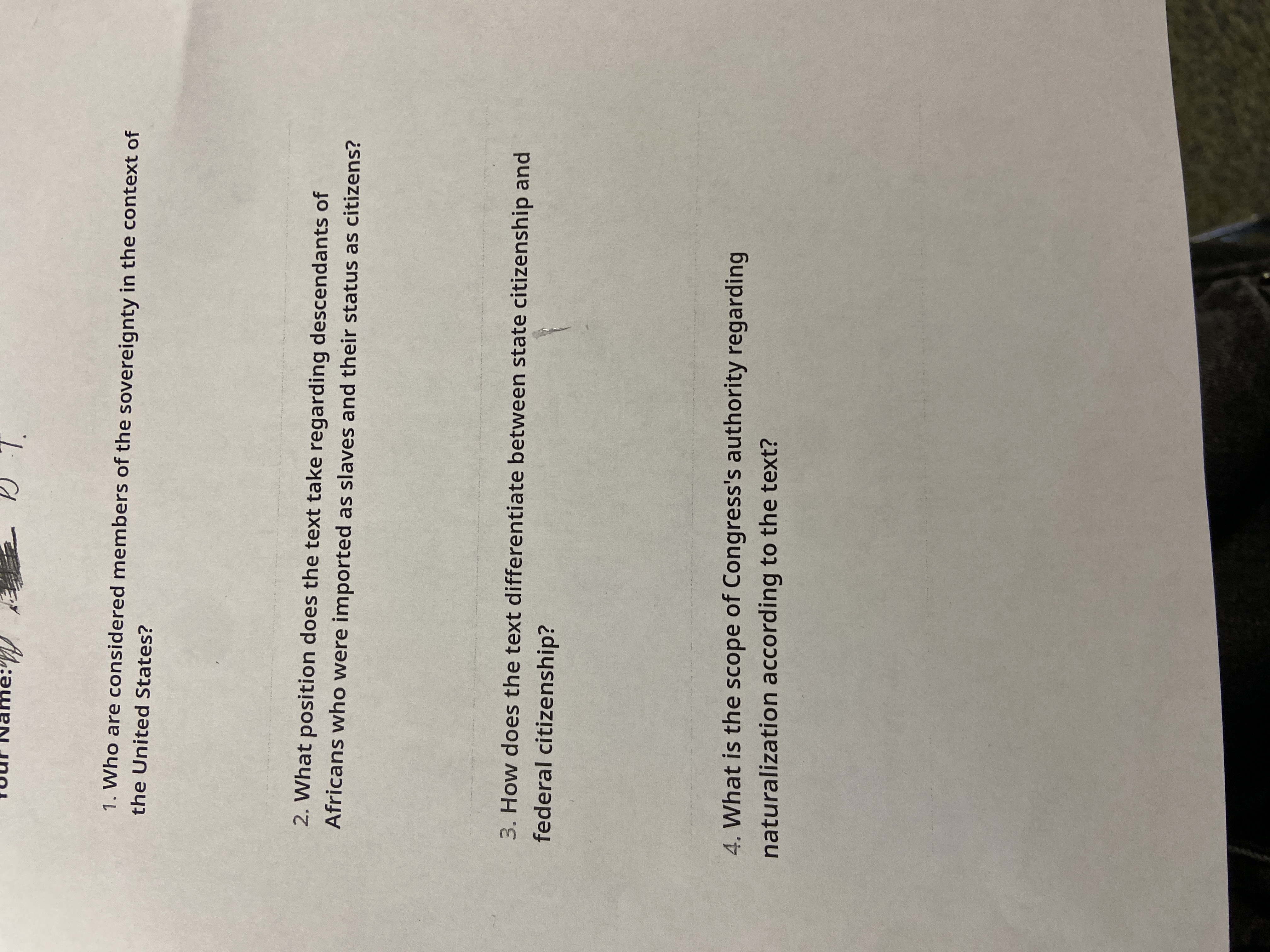1. Who are considered members of the sovereignty in the context of the United States? 2. What position does the text take regarding descendants of Africans who were imported as sla... 1. Who are considered members of the sovereignty in the context of the United States? 2. What position does the text take regarding descendants of Africans who were imported as slaves and their status as citizens? 3. How does the text differentiate between state citizenship and federal citizenship? 4. What is the scope of Congress's authority regarding naturalization according to the text?

Understand the Problem
The image contains four questions related to civics and the interpretation of a text. You need to identify key information within the provided document regarding: (1) members of sovereignty in the US, (2) the text's stance on the citizenship status of descendants of enslaved Africans, (3) distinctions between state and federal citizenship, and (4) the scope of Congress's power over naturalization as per the text.
Answer
1. Not defined. 2. Descendants of slaves are not citizens. 3. State citizenship does not guarantee federal citizenship. 4. Not explicitly defined, but touches upon citizenship.
Based on the provided search results relating to the Dred Scott v. Sandford case:
- The text does not define who are considered members of the sovereignty in the context of the United States. It focuses on who is not considered a citizen.
- The text takes the position that descendants of Africans who were imported as slaves are not citizens of the United States.
- The text differentiates between state and federal citizenship by asserting that even if a state considers someone a citizen, that does not automatically confer federal citizenship.
- The search results do not contain a clear statement on the scope of Congress's authority regarding naturalization according to the text. The case does touch upon citizenship, which is related to naturalization, but it does not explicitly define the limits of Congress's power in this area.
Answer for screen readers
Based on the provided search results relating to the Dred Scott v. Sandford case:
- The text does not define who are considered members of the sovereignty in the context of the United States. It focuses on who is not considered a citizen.
- The text takes the position that descendants of Africans who were imported as slaves are not citizens of the United States.
- The text differentiates between state and federal citizenship by asserting that even if a state considers someone a citizen, that does not automatically confer federal citizenship.
- The search results do not contain a clear statement on the scope of Congress's authority regarding naturalization according to the text. The case does touch upon citizenship, which is related to naturalization, but it does not explicitly define the limits of Congress's power in this area.
More Information
The Dred Scott decision was a controversial Supreme Court ruling in 1857 that denied citizenship to enslaved people. It was later overturned by the 14th Amendment to the United States Constitution.
Tips
It is important to note that the Dred Scott decision reflects a historical context and legal interpretation that is no longer valid due to subsequent constitutional amendments and legal precedents.
Sources
- Dred Scott v. Sandford (1857) - National Archives - archives.gov
- Dred Scott v. Sandford | 60 U.S. 393 (1856) - supreme.justia.com
- [PDF] Dred Scott v. Sandford, 60 U.S. (19 How.) 393 (1856). - Loc - tile.loc.gov
AI-generated content may contain errors. Please verify critical information